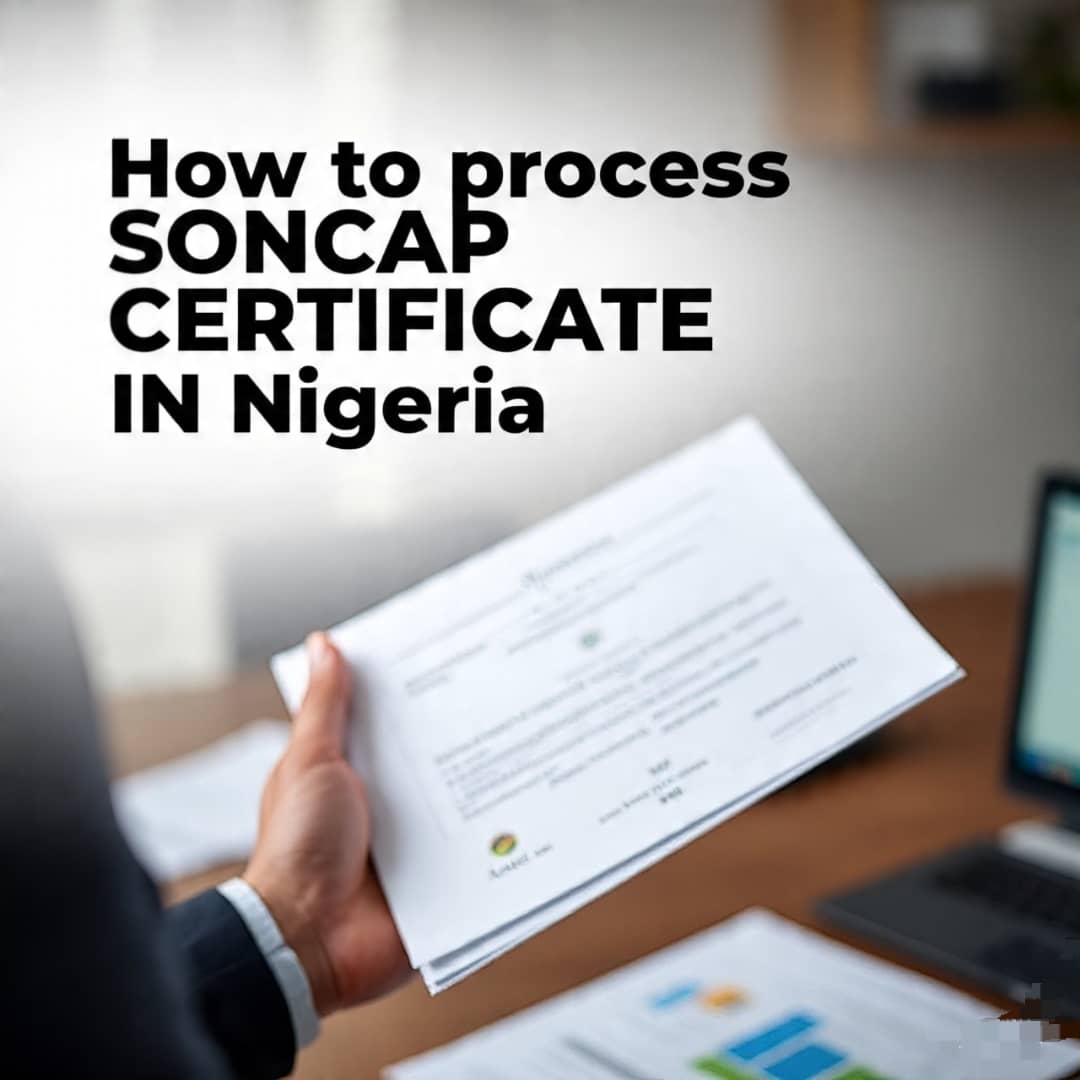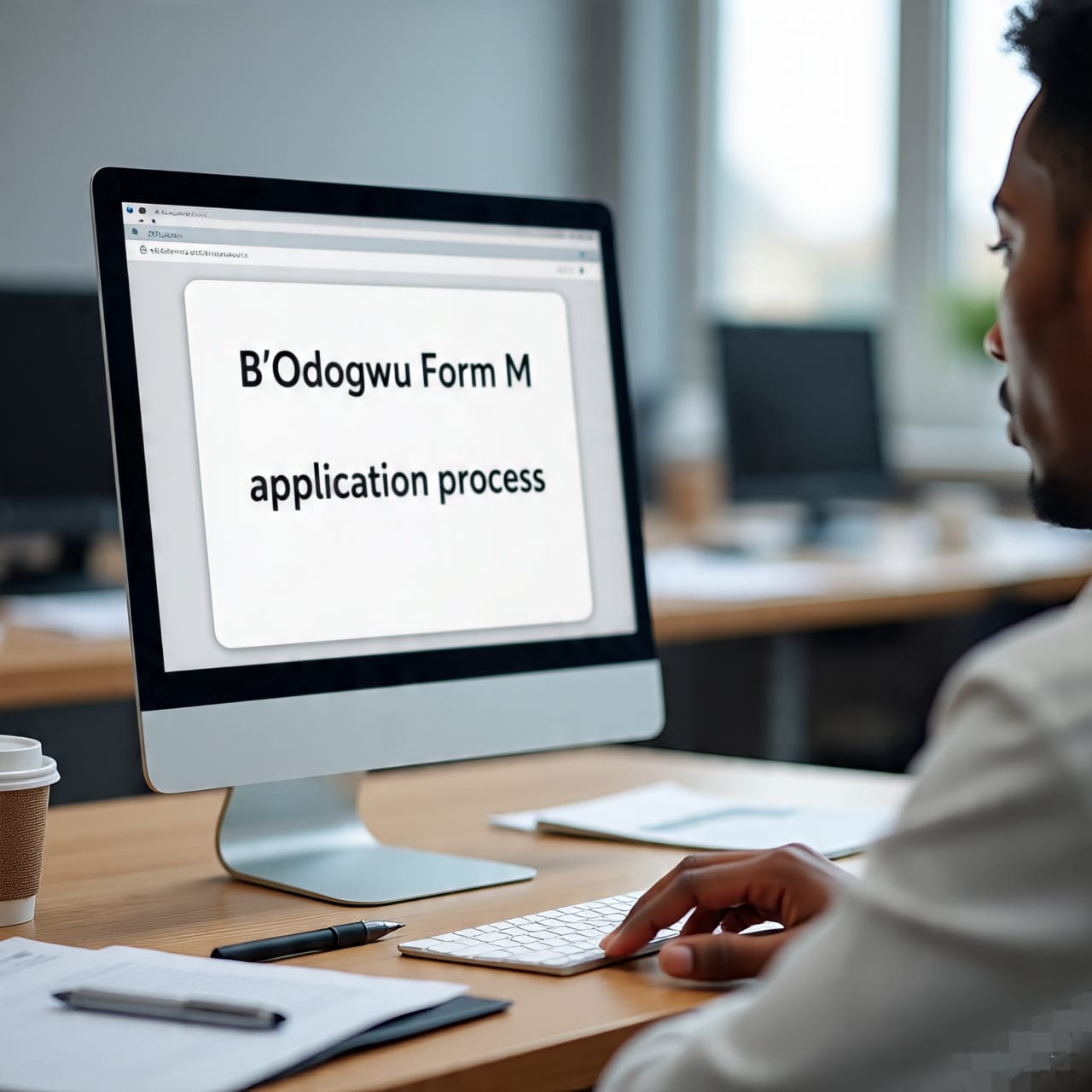
- 19, Sep 2025
- 316 Views
- 0 Comments
- Uncategorized
How to Process and Obtain a SONCAP Certificate in Nigeria: A Comprehensive Guide
Nigeria, with its burgeoning economy and vast population, presents a lucrative market for international businesses looking to export goods. However, navigating the country's regulatory landscape is crucial for successful market entry. A key requirement for exporting regulated products to Nigeria is obtaining a SONCAP (Standards Organisation of Nigeria Conformity Assessment Program) certificate. This certificate is mandatory for clearing certain goods through Nigerian customs and ensures products conform to Nigerian Industrial Standards (NIS).
What is SONCAP?
SONCAP is a conformity assessment program instituted by the Standards Organisation of Nigeria (SON) aimed at verifying that imported goods meet Nigeria's standards and technical regulations. The program covers a wide array of products including electronics, machinery, building materials, chemicals, and textiles, among others. Certain categories like raw agricultural food products (regulated by other agencies), drugs (under NAFDAC), military equipment, and some exempted goods may have different or additional requirements.
Importance of SONCAP Certificate
- Mandatory for Customs Clearance: For regulated products, a SONCAP Certificate (SC) is required for customs clearance in Nigeria.
- Ensures Product Quality: Helps ensure imported goods meet Nigerian standards, protecting consumers and promoting fair trade.
- Facilitates Trade: Compliance with SONCAP can facilitate smoother import processes.
Steps to Obtain a SONCAP Certificate
1. Product Testing and Evaluation: Exporters typically need to have their products tested by laboratories accredited by SON or meeting relevant international standards like ISO/IEC 17025. Testing ensures products comply with applicable Nigerian Industrial Standards (NIS).
2. Obtain Product Certificate (PC): After successful testing and evaluation, exporters apply for a Product Certificate (PC). There are different types of PCs:
- PC1 (Unregistered): Valid for six months, typically for a single shipment.
- PC2 (Registered): Valid for one year, allows multiple shipments.
- PC3 (Licensed): For products under license agreements, valid for one year.
3. Apply for SONCAP Certificate (SC): With a valid PC, exporters or importers apply for a SONCAP Certificate through SON's electronic platform. Necessary documents often include the PC, commercial invoice, Form M, packing list.
4. Verification and Inspection: SON or accredited conformity assessment bodies may conduct inspections or verifications to ensure the shipment complies with the PC and regulatory requirements.
5. Certificate Issuance: Upon satisfactory assessment, SON issues the SONCAP Certificate specific to the consignment.
Required Documents for SONCAP
- Commercial Invoice: Details goods' value and description.
- Form M: A mandatory import document in Nigeria, processed through authorized dealer banks.
- Packing List: Itemizes goods packaging details.
- Product Certificate (PC): Issued after product testing/evaluation.
- Bill of Lading/Air Waybill: Shipment receipt and contract evidence.
Costs Associated with SONCAP
- Product Certificate (PC) Costs: Can range approximately $300-$600 or more, depending on product complexity.
- SONCAP Certificate (SC) Costs: Typically $200-$350, varying by factors like product type.
- Testing Fees: Additional costs for laboratory testing.
- Inspection Fees: May apply for physical inspections.
Timelines for SONCAP Processing
- PC Processing: Can take about 7-10 working days post-testing.
- SC Processing: Usually takes 2-5 days after receiving complete documentation.
- Planning ahead is essential to avoid shipment delays.
Key Regulatory Bodies and Accredited Firms
- Standards Organisation of Nigeria (SON): The main regulatory body overseeing standards and SONCAP.
- Accredited Conformity Assessment Bodies: Firms like SGS, Intertek, Cotecna, Bureau Veritas are involved in offshore SONCAP processes for exporters.
- International Accreditation: Bodies like these often have accreditation from international organizations.
SONCAP Process for Exporters and Importers
- Exporters: Often work with accredited bodies for testing and PC/SC processes offshore.
- Importers: In Nigeria, typically need to ensure SONCAP compliance for customs clearance; may engage a very good and experienced clearing agent like Ocean Speed Company Ltd.
- Form M and PC Link: Form M opening often requires reference to PC.
Challenges and Considerations
- Regulatory Compliance: Ensuring products meet NIS and obtaining necessary certifications.
- Costs and Timelines: Managing costs and planning for lead times.
- Documentation Accuracy: Errors can lead to clearance delays.
- Product Changes: Updates may require retesting/certification.
Sector-Specific Requirements
- Electronics: Must comply with relevant safety and performance standards.
- Building Materials: Need to meet standards for construction use in Nigeria.
- Chemicals: Compliance with applicable standards and regulations.
Conclusion
Obtaining a SONCAP certificate is crucial for exporting regulated goods to Nigeria, ensuring compliance with national standards and facilitating customs clearance. Understanding the process helps businesses navigate Nigeria's import regulations effectively. Contact Ocean Speed Company Ltd for your SONCAP and SON Product Certificate.
Recent Posts
Tags
Our Address
- 31A Commercial Road, Apapa, Lagos, Nigeria.
- A188, Guotai Commercial City, No. 2 Zoumagang Road,
Sanyuanli Street, Baiyun District, Guangzhou, China.
(地址:广州市白云区三元里街走马岗路2号国太商贸城A188档。) - Call : +234 90 1089 2321
WhatsApp : +2348035988240 - Email : info@oceanspeedcompany.ng
Web : www.oceanspeedcompany.ng - Mon - Sat: 8AM - 7PM



